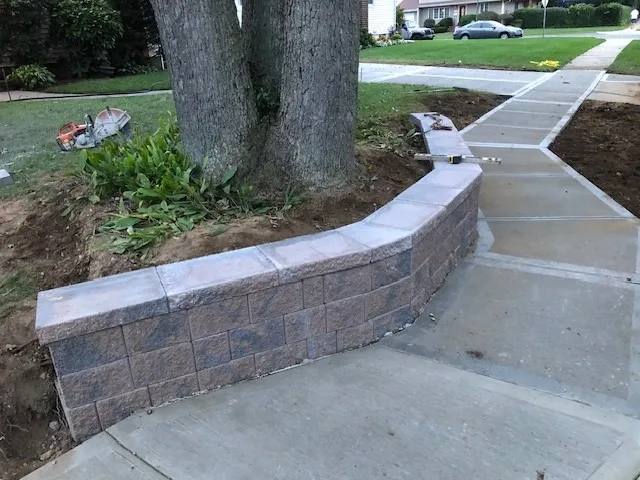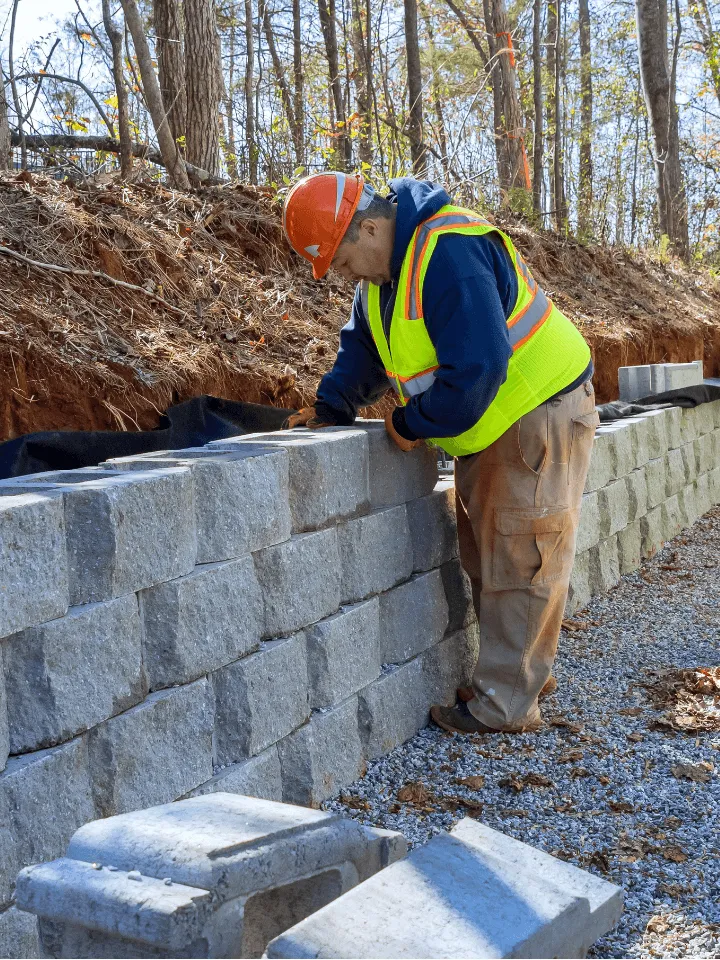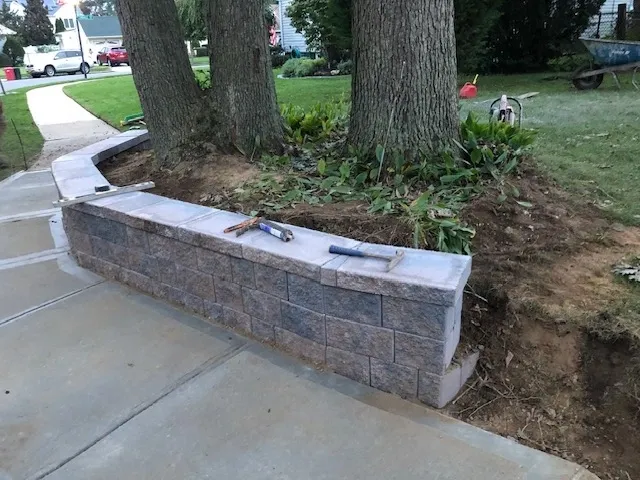Functional Walls That Look Fantastic
Retaining Wall Contractors
Serving in Suffolk County, Nassau County, and More!





They Do More Than Just Hold Back Soil
Retaining walls aren’t just for holding back soil, they’re for shaping beautiful, functional outdoor spaces. From sloped lawns, soil erosion, or you just want to create raised beds, our team at Diamond Masonry & Waterproofing is ready to build walls that last and are beautiful. Schedule a free estimate today!

Qualified Builders
From large structural walls to small garden tiers.
Engineered Strength
Built to handle pressure and bad weather.
Seamless Looks
Match materials and finishes to blend together.
Unique Style
From curves to corners, every wall is built to you.
Upfront Quotes
You’ll get clear, honest quotes, no hidden fees.
We Build Them to Hold Back Soil and Boost Curb Appeal
A retaining wall should never be an afterthought. Done right, it protects your property from soil erosion, defines your landscape, and adds clean, modern lines to your yard.
At Diamond Masonry & Waterproofing, we bring years of experience, thoughtful design, and expert construction to every build, whether you need a low garden wall or a large structural installation. We take the time to understand the unique grading and drainage challenges of your property, so your wall isn’t just built to look good, it’s built to work properly.
Here’s how we build it right:
Take the first step toward a dry, secure home. Contact us now for expert waterproofing and masonry solutions tailored to your needs.

With 500+ completed projects, Diamond Masonry & Waterproofing is trusted for craftsmanship that holds up. Whether you’re stopping erosion or reshaping your landscape, our special wall builds are designed to do it all, with looks and strength that last for years.
The most affordable retaining walls are usually made from timber or pressure-treated wood. These materials are budget-friendly and easier to install, making them a great choice for small, non-structural walls. At Diamond Masonry & Waterproofing, we can help you weigh the pros and cons based on your needs and long-term goals.
The four main types are:
Gravity walls – rely on their own weight to hold back soil
Cantilever walls – use a reinforced base slab and leverage to stabilize
Anchored walls – supported by anchors driven deep into the soil
Sheet piling walls – thin vertical panels used in tight spaces or soft soil
Each type serves a different purpose, and at Diamond Masonry & Waterproofing, we recommend the right system based on your yard’s slope, soil type, and height needs.
The #1 cause of retaining wall failure is poor drainage. If water builds up behind the wall with no place to go, it creates pressure that can crack, lean, or even collapse the structure. That’s why we always include proper drainage systems with every wall we build.
Yes, even low retaining walls like a 2-footer should have basic drainage in place. Water can still accumulate behind short walls, leading to erosion or frost damage over time. We install compact, effective drainage that keeps your wall strong without taking up extra space.
You can, but it depends on the height and the purpose. DIY retaining walls are doable for short, decorative builds, usually under 3 feet. But for anything taller, structural, or load-bearing, it’s best to bring in pros like Diamond Masonry & Waterproofing. We make sure it’s safely engineered, properly drained, and built to code so you don’t run into issues later.
A retaining wall is designed to hold back soil and prevent erosion, especially on sloped or uneven land. It can also help create level areas for landscaping or outdoor living spaces. Retaining walls are commonly used for basements, gardens, and to support driveways or patios, providing both functional and aesthetic benefits.
In Nassau county’s climate, materials like stone, concrete block, and interlocking concrete pavers are ideal for retaining walls. These materials are durable, resistant to freeze-thaw cycles, and provide a natural aesthetic. Pressure-treated wood can also be an option, but it’s better for smaller walls or less harsh conditions.
The foundation depth of a retaining wall depends on the height of the wall and the type of soil. As a general rule, the base should be at least 6 inches deep for low walls, and up to 12 inches or more for taller walls. Proper excavation makes sure that the wall is stable and can withstand the pressure of the soil behind it.
Common mistakes include insufficient drainage, improper foundation depth, and failing to use the right materials for the project’s needs. Additionally, not incorporating reinforcement or backfilling correctly can cause the wall to shift or fail prematurely. It’s also important to consider local building codes and soil conditions before construction.
Retaining walls generally require minimal maintenance, but occasional inspection for cracks, erosion, or shifting is important. Clearing debris and ensuring proper drainage behind the wall will help prevent water buildup, which is a major cause of failure. In some cases, re-leveling or re-grading the soil behind the wall may be necessary.
